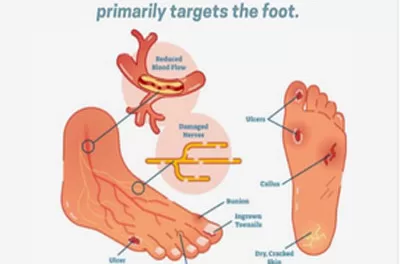A recent study published in the American Journal of Human Genetics suggests that investigators may have uncovered differential associations between smoking and DNA methylation across various racial and ethnic groups. The findings have significant implications for predicting the risk of lung cancer and other smoking-related diseases.
Smoking is known to alter gene expression, contributing to the development of lung cancer and other smoking-related illnesses. However, the link between smoking and epigenetics—specifically DNA methylation—and how it varies across different racial and ethnic groups has not been fully understood.
Lead study author Dr. Brian Huang, Assistant Professor in the Department of Population and Public Health Sciences at the Keck School of Medicine at the University of Southern California, highlighted the importance of identifying epigenetic signatures of smoking to better predict the risk of smoking-related diseases.
The study, utilizing data from the Multiethnic Cohort Study, analyzed outcomes from nearly 2,000 individuals from diverse racial and ethnic backgrounds, including Black, White, Japanese, Latino, and Native Hawaiian participants. By quantifying smoking using biological samples rather than self-reported measures, the investigators were able to identify DNA methylation changes associated with smoking across the genome.
The findings revealed that smoking was linked to DNA methylation changes at 408 sites, including 45 new sites not previously identified. Importantly, two sites showed significant risk differences depending on race or ethnicity—one in Black individuals and another in Latino individuals. These sites were associated with genes related to cancer progression and other disease processes.
Dr. Huang emphasized that total nicotine equivalents provided more information beyond self-reported measures of smoking, indicating the potential for more accurate risk prediction.
To validate their findings, the investigators collected data from additional participant cohorts and identified many of the same DNA methylation changes associated with smoking, reinforcing the consistency of epigenetic markers across multiple racial and ethnic groups.
The study’s results could lead to better prediction, early detection, and treatment of smoking-related diseases. Dr. Huang highlighted the importance of understanding the mechanisms by which DNA methylation mediates the relationship between smoking and lung cancer risk.
Moving forward, the researchers aim to explore additional biomarkers of smoking and conduct further epigenome-wide association studies to deepen our understanding of how epigenetic changes influence an individual’s risk of developing lung cancer.
The research was supported by the National Institutes of Health and the National Cancer Institute, underscoring the importance of continued investigation into the complex relationship between smoking, DNA methylation, and disease risk. For full disclosures of the study authors, readers are encouraged to visit sciencedirect.com.












